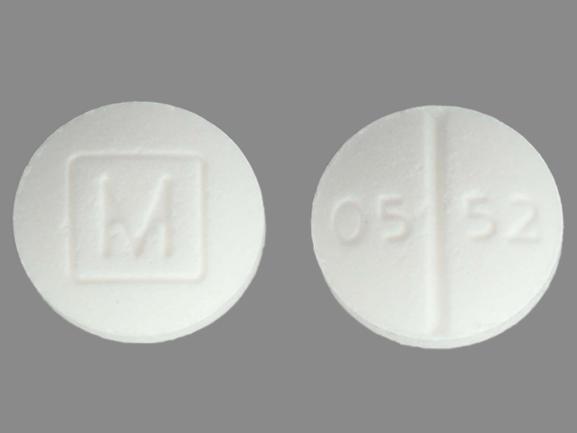Understanding Into the Legitimate Utilizes Related To Oxycodone Consumption
Oxycodone, a potent opioid medicine, is frequently a topic of conflict as a result of its potential for misuse and addiction. Nevertheless, in the middle of these worries, it is important to recognize the genuine and necessary duties that oxycodone plays in the world of medical care. From supplying relief to cancer patients battling agonizing discomfort to assisting in post-surgical recovery, the applications of oxycodone are impactful and significant. Recognizing the nuanced scenarios in which this medication is properly used sheds light on the elaborate balance between its risks and benefits, motivating a deeper exploration right into the globe of pharmaceutical interventions in handling serious pain.
Pain Management in Cancer Clients
Pain monitoring in cancer clients is an important aspect of their total care and treatment routines. People battling cancer often experience varying levels of pain, which can significantly affect their quality of life. Effective pain monitoring not just eases physical discomfort but likewise deals with the emotional and emotional toll that persistent pain can tackle clients.
Cancer cells pain can stem from the illness itself, such as lump development continuing body organs or nerves, or as a side impact of therapies like radiation, radiation treatment, or surgical procedure - Buy Oxycodone online. It is necessary that doctor use a multidisciplinary method to discomfort management in cancer clients, customizing interventions to attend to the particular kind and source of pain experienced by each person
Treatment options may consist of medicinal interventions like opioids, non-opioid anesthetics, and adjuvant medicines, as well as non-pharmacological methods such as physical treatment, acupuncture, and cognitive-behavioral therapy. The goal of discomfort management in cancer individuals is not just to lower pain degrees however additionally to improve general functioning and lifestyle throughout the program of their illness.
Post-Surgical Pain Alleviation
Complying with procedures, effective monitoring of discomfort and advertising healing are essential facets of client treatment. Post-surgical discomfort relief plays a crucial duty in guaranteeing individuals' comfort and promoting their recovery procedure. Oxycodone, a powerful opioid analgesic, is typically recommended for handling moderate to severe pain following surgery.
Post-operative pain can prevent a client's ability to move, take a breath deeply, and participate in essential activities for healing. Oxycodone helps minimize this discomfort by binding to opioid receptors in the mind and spine, reducing the perception of pain. By offering reliable pain relief, oxycodone enables patients to take part in physical treatment, enhance their movement, and prevent problems related to insufficient discomfort control.

Chronic Discomfort Administration
Effective management of persistent pain is important for boosting individuals' lifestyle and capability. Chronic discomfort, lasting for weeks to years, can substantially influence a person's daily activities, mental health, and general health. Oxycodone, a powerful opioid discomfort drug, is frequently recommended to help manage chronic discomfort problems such as arthritis, fibromyalgia, and lower back discomfort when other treatments have confirmed inefficient.
When used responsibly and under close medical supervision, oxycodone can provide much-needed alleviation to people dealing with chronic discomfort. By targeting the central nerve system to modify the understanding of pain, oxycodone can aid individuals gain back wheelchair, take part in physical therapy, and take part in activities they delight in. This, in turn, can result in improved state of mind, better rest, and improved total performance.
It is necessary for doctor to carefully assess each client's discomfort level, clinical background, and danger aspects prior to recommending oxycodone for persistent pain management. Normal monitoring and modifications to the therapy plan are essential to make certain the drug's efficiency while decreasing the risk of dependancy or abuse.
Palliative Care Use
When considering the wider range of healthcare beyond persistent discomfort administration, the application of oxycodone in palliative care settings comes to be a subject of significant relevance. Palliative treatment goals to boost the lifestyle for clients dealing with significant diseases by addressing their physical, psychological, and spiritual demands. Oxycodone, a powerful opioid analgesic, plays an essential function in palliative care by efficiently taking care of extreme discomfort that typically comes with innovative diseases such as cancer cells, end-stage body organ failing, or advanced neurological conditions.
In palliative care, oxycodone is recommended carefully and under close guidance to alleviate upsetting signs, promote comfort, and improve overall well-being. The medication is tailored per patient's particular requirements, ensuring optimal pain alleviation while reducing possible side impacts. Doctor in palliative care setups function very closely with clients and their families to create individualized treatment strategies that focus on signs and symptom monitoring and dig this psychological assistance.
Serious Injury Pain Control

However, it is vital to stress the importance of utilizing oxycodone properly and sticking strictly to recommended does to minimize the risk of dependency, tolerance, and possible negative effects. Medical care companies should closely monitor people obtaining oxycodone for serious injury discomfort control to ensure its effectiveness suffering monitoring while reducing the likelihood of misuse or dependency. By incorporating oxycodone into a comprehensive discomfort monitoring strategy tailored to the private requirements of the person, medical care experts can maximize treatment outcomes and promote a smoother recovery process from serious injuries.
Verdict
Finally, oxycodone offers as a vital tool in discomfort management for different clinical conditions such as cancer, post-surgical recuperation, chronic discomfort, palliative care, and serious injuries - Buy Oxycodone online. Its effectiveness in giving relief to clients experiencing severe pain has been well-documented. When utilized properly and under clinical guidance, oxycodone can dramatically improve the lifestyle for people dealing with debilitating discomfort
By offering effective pain alleviation, oxycodone allows patients to participate in websites physical therapy, boost their mobility, and avoid difficulties linked with inadequate pain control.
Oxycodone, a powerful opioid discomfort medicine, is commonly suggested to help take care of chronic pain problems such as arthritis, fibromyalgia, and reduced back pain when other therapies have actually verified ineffective.
Oxycodone, a powerful opioid analgesic, is reliable in offering alleviation from serious pain by acting on the central nervous system to modify the understanding of pain. Medical care suppliers should very closely keep track of patients receiving oxycodone for extreme injury discomfort control to guarantee its effectiveness in pain management while minimizing the likelihood of abuse or dependency.In final thought, oxycodone serves as a vital tool in pain management for various medical conditions such as cancer, post-surgical recovery, chronic pain, palliative treatment, and severe injuries.